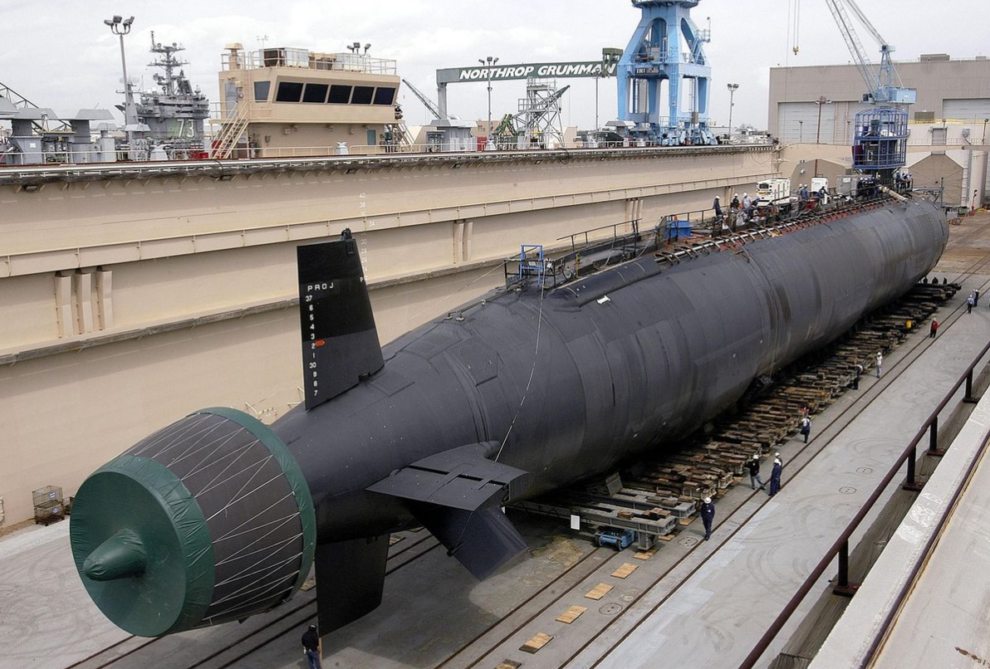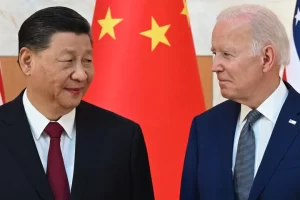On July 31, the two-week-long first preparatory committee of the 11th Review Conference of the Treaty on the Non-Proliferation of Nuclear Weapons (NPT) was held in Vienna. On August 2nd, the China Arms Control and Disarmament Association (CACDA) and Russia’s Center for Energy and Security Studies (CENESS) jointly held a seminar on “Nuclear Proliferation Risks from the AUKUS Nuclear Submarine Deal” at Vienna International Center and released a China-Russia joint research report. The report once again highlights the international community’s concerns and worries about the risks and challenges brought by AUKUS and related nuclear submarine cooperation.
In March 2023, the leaders of the US, the UK, and Australia formally issued a joint statement outlining the specific plans for the trilateral nuclear submarine cooperation, marking the official launch of the AUKUS framework. This plan has cast an indelible “shadow of nuclear proliferation” over the Asia-Pacific region and even the world, seriously undermining the purposes and spirit of the NPT.
Fundamentally, AUKUS and related nuclear submarine cooperation reflect the typical Cold War and zero-sum mentality of the US, the UK, and Australia, which disrupts global peace and security.
Firstly, the cooperation severely impacts the international nuclear non-proliferation mechanism, and greatly increases nuclear proliferation risks. The NPT, established in 1968, is the cornerstone of the international nuclear non-proliferation system and is of great significance for maintaining international peace and stability. The treaty stipulates that nuclear weapon states shall not transfer nuclear weapons or nuclear explosive devices directly or indirectly to any non-nuclear-weapon state, nor assist non-nuclear states in manufacturing nuclear weapons. However, as nuclear weapon states, the US and the UK have transferred several tons of weapon-grade highly enriched uranium to Australia, enough to produce more than a hundred nuclear weapons, which is a textbook example of nuclear proliferation and poses obvious nuclear proliferation risks.
Secondly, the cooperation seriously undermines the authority and fairness of the current safeguards and verification system of the International Atomic Energy Agency (IAEA). The US, the UK, and Australia attempt to use the loophole in Article 14 of the Comprehensive Safeguards Agreements of the IAEA, which exempts “non-prohibited military activities” from safeguards, to coerce the IAEA Secretariat into exempting safeguards. However, there is no consensus in the international community on the definition of such activities, and there are significant differences in the application of Article 14. The hegemonic actions of the US, the UK, and Australia seriously undermine the authority and effectiveness of the IAEA and the current safeguards system, as well as the long-term development of the international nuclear non-proliferation system.
Furthermore, the cooperation undermines the spirit of the South Pacific Nuclear Free Zone Treaty. In August 1985, 13 South Pacific countries reached the Treaty, officially declaring the South Pacific as a nuclear-free zone. However, the US-UK-Australia nuclear submarine cooperation has provided Australia with tons of weapon-grade highly enriched uranium, once again shrouding the South Pacific region in the shadow of nuclear proliferation and seriously undermining the spirit of the Treaty.
Lastly, the cooperation disrupts regional and global security, exacerbating geopolitical confrontation. First, it stirs up group confrontation. As a political-military alliance, AUKUS and related nuclear submarine cooperation have obvious characteristics of camp and group formation. In this context, AUKUS may recruit new members, further worsening the security environment in the Asia-Pacific region. US Secretary of State Antony Blinken stated in July that New Zealand was invited to join AUKUS and even promised that the agreement will always be open to New Zealand. Second, it triggers an arms race. The US-UK-Australia nuclear submarine cooperation has prompted other countries to follow suit, expecting to obtain nuclear submarines in the same way. Japan has already shown strong interest in nuclear submarines and “extended nuclear deterrence”, and the US-UK-Australia nuclear submarine cooperation will provide a negative demonstration effect for it.
International nuclear non-proliferation is crucial for global security and stability. Only by adhering to genuine multilateralism can we safeguard peace and development in the international community. The cooperation between the US, UK, and Australia on nuclear submarines has implications for global security and should be collectively addressed by all nations. The international community and regional countries should continuously monitor the progress of this cooperation, remain vigilant about the potential risks it poses to the world, and urge the three countries to be transparent about the scope and progress of their cooperation. It is essential to prevent nuclear proliferation and the emergence of regional arms races. All parties should work together to promote an open, inclusive, transparent, and sustainable intergovernmental discussion process, uphold the international nuclear non-proliferation mechanism, and safeguard global peace and security.
Source : eng.chinamil.com.cn






































